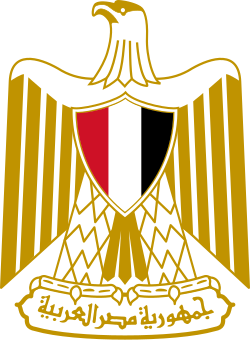| |||||||||||||||||
| Registered | 8,420,768 | ||||||||||||||||
|---|---|---|---|---|---|---|---|---|---|---|---|---|---|---|---|---|---|
| Turnout | 85.00% | ||||||||||||||||
| |||||||||||||||||
| |||||||||||||||||
 |
|---|
Contents |
| Constitution (history) |
| Administrative divisions |
| Political parties (former) |
Presidential elections were held in the United Arab Republic on 15 October 1970, [1] following the death of the incumbent Gamal Abdel Nasser on 28 September of the same year. The election took the form of a referendum on the candidacy of vice president and acting president Anwar El Sadat. According to the official results, 90% of voters voted in favor of Sadat, with a turnout of 85%. [2]
